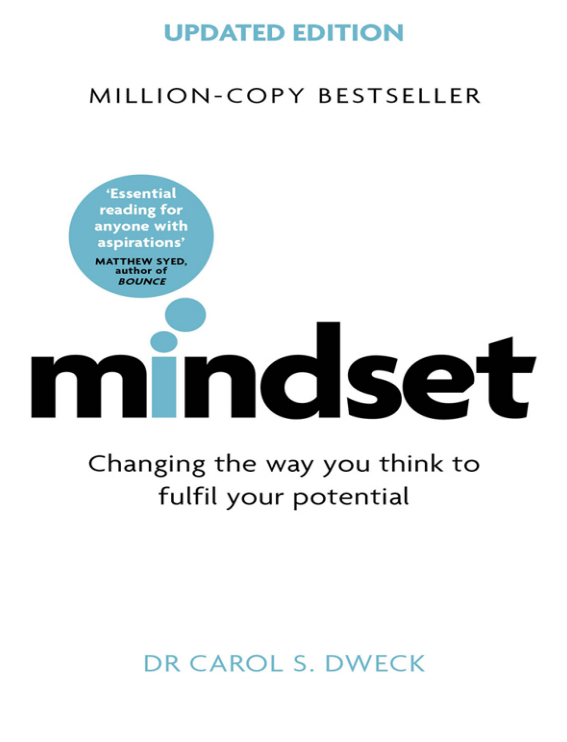
“Becoming is better than being.”
Dweck uses this phrase to capture the heart of the growth mindset—valuing the process of learning and development over the need to appear smart or successful. It’s a call to embrace challenges, persist through setbacks, and see effort as a path to mastery.
This bookpresents a groundbreaking exploration of how our beliefs about ability shape our achievements, relationships, and personal growth. Through decades of research, Dweck identifies two core mindsets:
Fixed Mindset:
Belief that intelligence, talent, and abilities are static traits.
Leads to avoidance of challenges (to avoid failure), defensiveness toward criticism, and feeling threatened by others’ success.
Growth Mindset:
Belief that abilities can be developed through effort, learning, and persistence.
Encourages embracing challenges, learning from setbacks, and finding inspiration in others’ success.
Failure is Feedback:
Those with a growth mindset see failure as a chance to improve, not as a reflection of their worth.
Example: Students who view a poor grade as a “not yet” rather than a “failure” outperform peers long-term.
Praise Matters:
Praising effort (“You worked hard!”) fosters resilience; praising intelligence (“You’re so smart!”) creates fragility.
Relationships Thrive with Growth Mindsets:
Fixed mindset: Conflicts prove incompatibility.
Growth mindset: Conflicts are opportunities to understand and grow together.
Business & Leadership:
Growth-minded leaders (like Jack Welch) build adaptable teams; fixed-minded CEOs (like Enron’s) often prioritize ego over improvement.
Dweck’s work reveals that mindset is a choice, not an innate trait. By adopting a growth mindset, anyone—students, athletes, parents, CEOs—can unlock greater resilience and achievement.